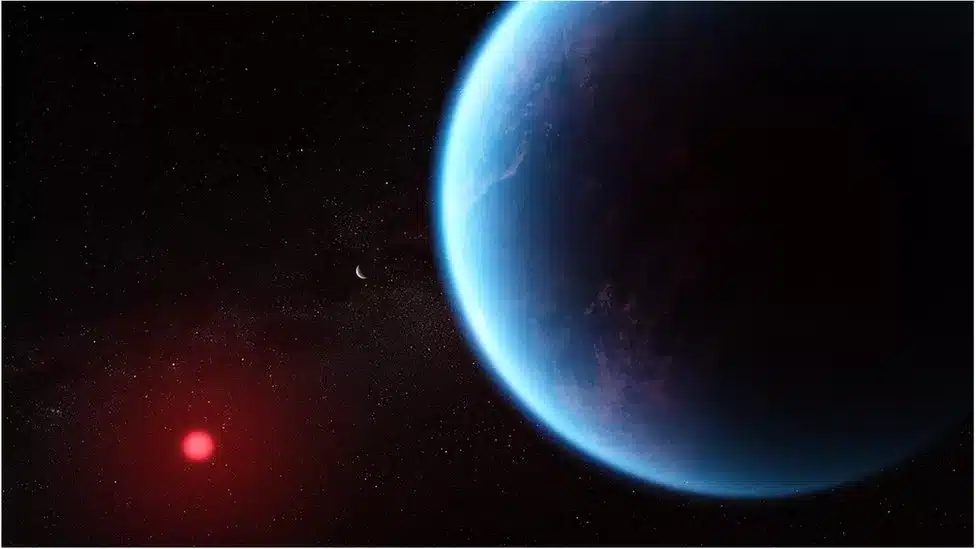There is a possibility that NASA’s James Webb Telescope has discovered signs of life on a distant planet.
BBC reports that the likelihood of life stems from the possible search for a molecule known as dimethyl sulphide (DMS) which is reportedly “only produced by life” in the case of Earth.
The researchers, however, believe that more data is needed to confirm its presence on the planet, named K2-18b, which is 120 light years away. Prof Madhusudhan from the University of Cambridge, who led the research, deemed the discovery as “tentative” and stressed on acquiring more data for confirmation and that result is expected in a year.
”If confirmed, it would be a huge deal and I feel a responsibility to get this right if we are making such a big claim.”, he added.
Researchers have also detected methane and CO2 in its atmosphere. This means that the planet also possibly has a water ocean.
Prof Madhusudhan said that his entire team were ”shocked” when they saw the results.
“On Earth, DMS is only produced by life. The bulk of it in Earth’s atmosphere is emitted from phytoplankton in marine environments,” he said.
Moreover, it is the first time detecting a possible DMS presence on a planet orbiting a distant star. But the claim is being dealt with caution as a similar claim was made in 2020 regarding the presence of a molecule called phosphine. It is a molecule that could be “produced by living organisms in the clouds of Venus”. This, however, was disputed a year later.







